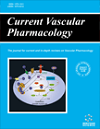
Full text loading...
Emotional, mental, or psychological distress, defined as increased symptoms of depression, anxiety, and/or stress, is common in patients with chronic diseases, such as cardiovascular (CV) disease (CVD).
Literature was reviewed regarding data from studies and meta-analyses examining the impact of emotional stress on the occurrence and outcome of several CVDs (coronary disease, heart failure, hypertension, arrhythmias, stroke). These influences' pathophysiology and clinical spectrum are detailed, tabulated, and pictorially illustrated.
This type of stress is a newly recognized risk and prognosticator for CVD including coronary artery disease, heart failure, hypertension, cardiac arrhythmias, and stroke, independently of conventional risk factors. It can impact CV outcomes, and also affect health care utilization, with more patient visits to health care facilities. The biological systems activated by mental stress comprise the sympathetic nervous system (SNS), the renin-angiotensin system (RAS), and the hypothalamic-pituitary-adrenal (HPA) axis, while several other biological processes are disrupted, such as endothelial function, inflammatory responses, oxidative stress, mitochondrial function and the function of the amygdala which is the central nervous system processing center of emotions and emotional reactions.
Emotional stress that aggravates symptoms of depression, anxiety, and/or perceived mental stress is common in patients with chronic diseases, such as CVD. It is a newly recognized risk and prognosticator for several CVDs. It can influence CV outcomes, and also affect health care utilization. The biological systems activated by mental stress comprise the SNS, the RAS, and the HPA axis, while several other biological processes are disrupted.

Article metrics loading...

Full text loading...
References


Data & Media loading...

